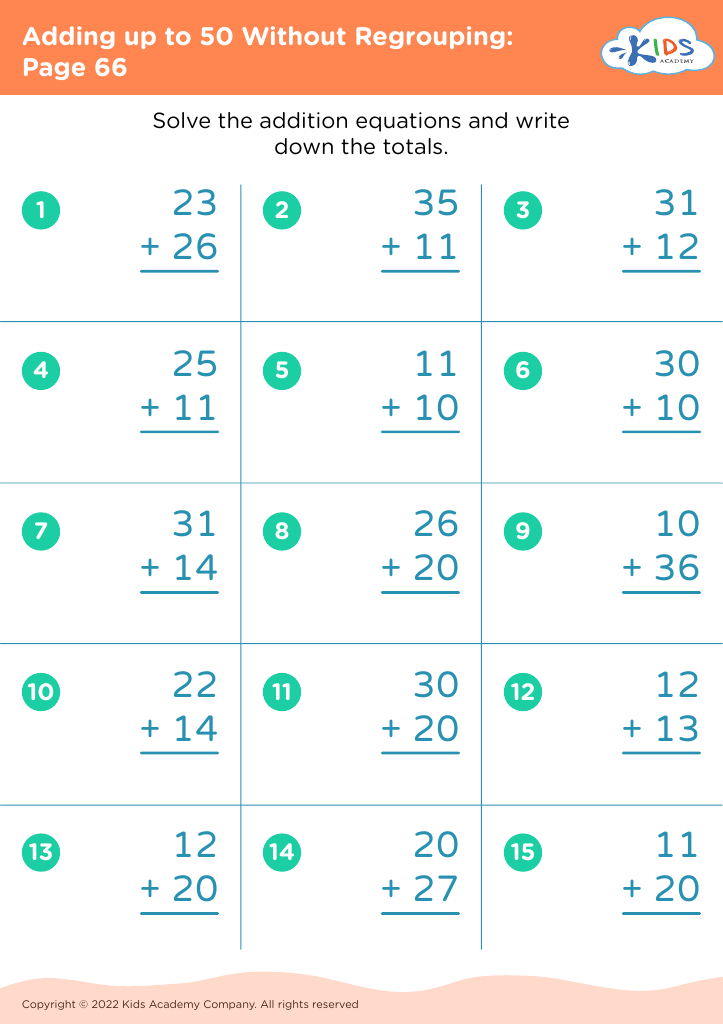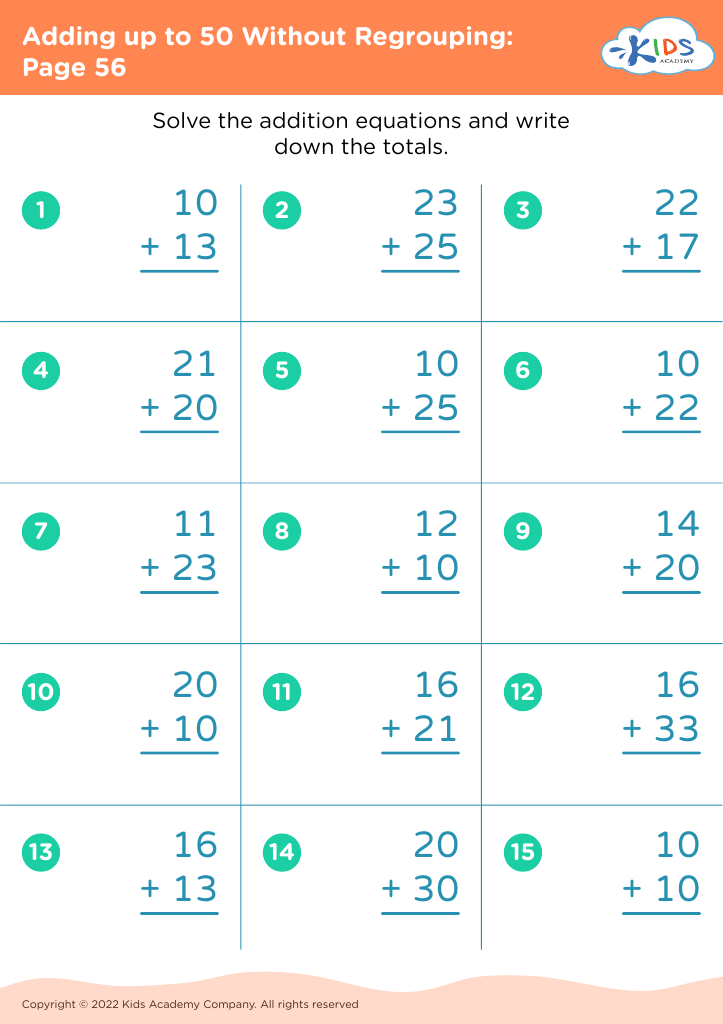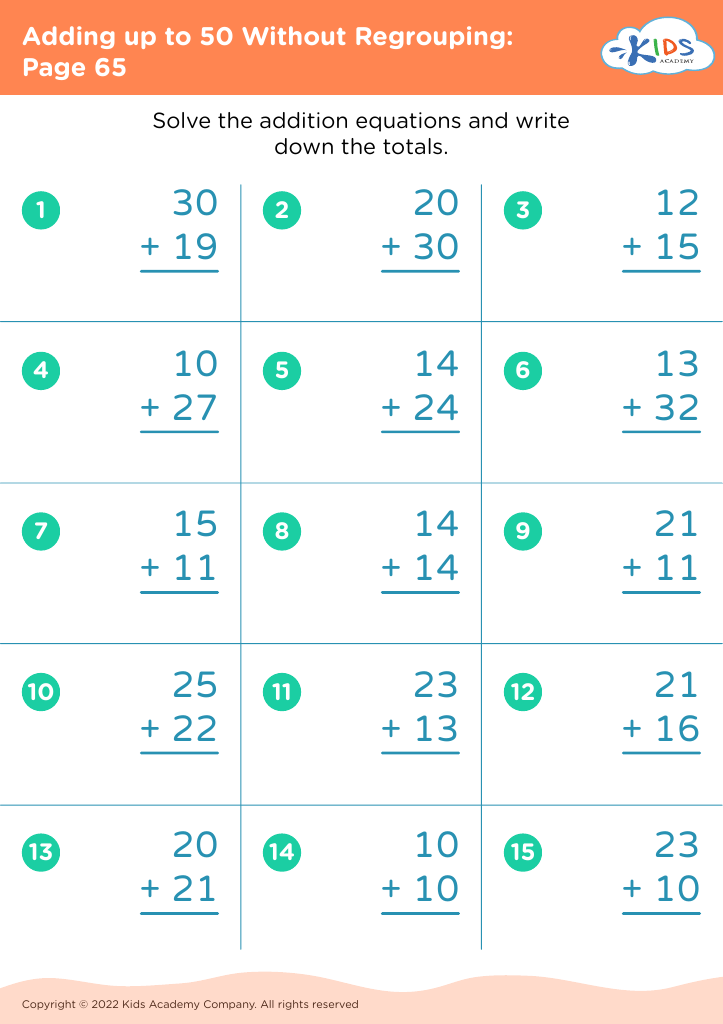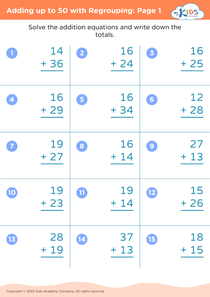Understand fractions Adding up to 50 Without Regrouping Worksheets for Ages 4-7
4 filtered results
-
From - To
Welcome to our engaging "Understand Fractions Adding Up to 50 Without Regrouping Worksheets" designed for children ages 4-7. These worksheets provide a fun and interactive way for young learners to grasp the concept of fractions while practicing addition skills without the need for regrouping. With colorful graphics and age-appropriate challenges, children will enjoy exploring fractions as they solve problems that add up to 50. Our resources aim to foster a solid foundation in math through hands-on learning and visualization. Perfect for classrooms or home use, these worksheets make fraction learning an enjoyable experience for your little mathematicians!
Understanding fractions, particularly the concept of adding fractions that add up to 50 without regrouping, is foundational in early mathematics education for children aged 4-7. At this developmental stage, children are building critical mathematical skills and concepts that will serve them throughout their academic journey.
Firstly, grasping the basics of fractions sets the groundwork for more complex mathematical operations. When kids learn to add fractions, they develop an understanding of parts of a whole, which enhances their number sense and spatial awareness. This knowledge encourages analytical thinking and problem-solving skills.
Moreover, understanding these concepts without regrouping allows young learners to practice and enhance their addition and mental math abilities. It can instill confidence in carrying out calculations independently, laying the groundwork for more advanced problem-solving techniques later on.
Concerns about math anxiety can start at an early age, and clear, foundational skills can alleviate this. When parents and teachers understand the importance of these skills, they can create supportive environments that encourage exploration and confidence in mathematics. Ultimately, the skills developed through learning fractions will not only be crucial for academic success but will also have lifelong applications in everyday decision-making and critical thinking.















